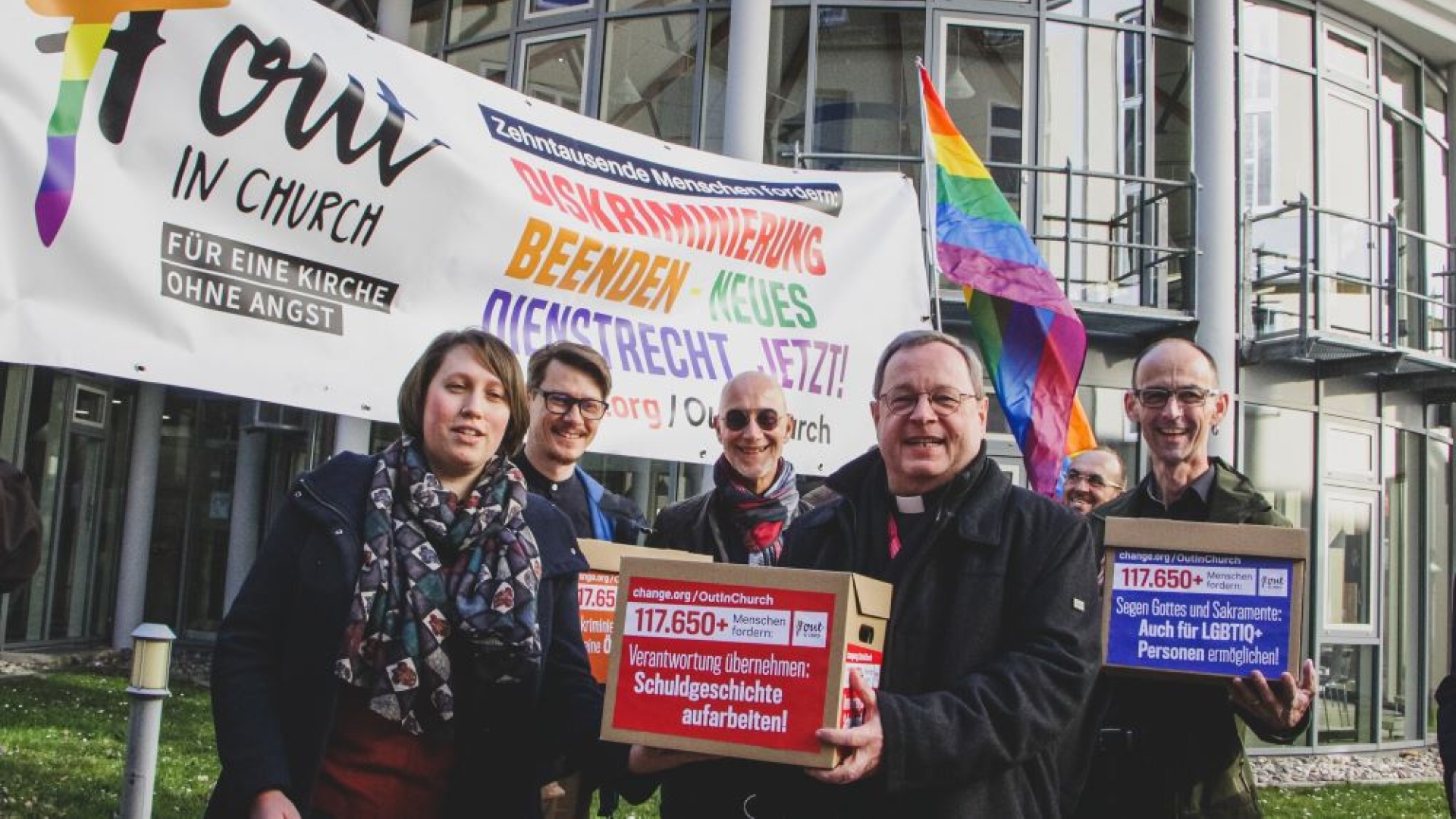Germany: Bishop Bätzing’s Strong Reaction to the Attack on the Synodal Path

Bishop Bätzing with the pro-LGBT Out-in-Church movement
FSSPX.News has reported the initiative by bishops from various parts of the world to warn the Church of Germany of the danger of schism involved in the process and the texts of the Synodal Path, which was initiated in 2019 and which has already held its third General Assembly.
Initially signed by 74 bishops, the “fraternal open letter” to the German episcopate now bears the signatures of 13 additional bishops, and brings together prelates from 15 countries from the four inhabited continents. The organizers are considering adding other signatories.
This letter followed two initiatives by national episcopates: the episcopal conference of Poland, in February, then the episcopal conference of Scandinavia in March, had already intervened directly with Msgr. Georg Bätzing, president of the German episcopal conference (DBK). The DBK had replied to these two objectors.
This time the response from the Bishop of Limburg was much quicker and more lively. The prelate vigorously defends Germany's particular synodal process, known as the Synodal Path.
Bishop Bätzing defends the process of which he is the appointed ecclesiastical representative. In particular, he refutes the accusation made by the bishops: that the inspiration for the movement is drawn from “sociological analysis and contemporary political ideas.” Which, by the way, is obvious to anyone who has carefully followed the genesis of the texts that are used in the Synodal Path.
He recalls that this “attempt in Germany (wants) to deal with the systemic causes of the abuses and their concealment,” which has obscured the testimony of the Church. He criticizes his opponents for not taking it into account. He adds that he would be surprised if his opponents do not see “the importance of the necessity” to react in and “to draw the consequences for the Church and its structures.”
He insists that “unfortunately there is a need to speak openly about power and the abuse of power in the Church, and the euphemisms you try to use in your letter are not really helpful.” And he concludes with this point: “Unfortunately, such abuses of power - including on the part of the episcopal authorities - are not only in the past, they are present and result in massive violations of the rights and personal integrity of the faithful and religious.”
This is why there must be “the introduction of new levels of ecclesiastical action (this is what we mean by separation of powers), which will in no way affect the authority of the hierarchical ministry, but will confer on it a newly founded acceptance among the people of God.” – This statement is at least adventurous, when reading the texts in preparation.
Bishop Bätzing goes on to claim his share of the inspiration of the Holy Spirit for the Church in Germany. He declares that the faithful, with their current experience, will be able to participate more effectively in Pope Francis’s world synod. This is why he also refutes any diminution of the power of the pope by the action of the Church in Germany.
And so, far from taking a first step towards self-criticism of the serious deviations that are maturing within the Synodal Path - in particular regarding sexual morality or the government of the Church - the president of the DBK more than ever claims the legitimacy and uprightness of this Path, like a sort of saving guide for the Church.
Related links
(Sources : cath.ch/dbk.de – FSSPX.Actualités)
Illustration : Flickr / Change.org e.V (CC BY-NC 2.0)





